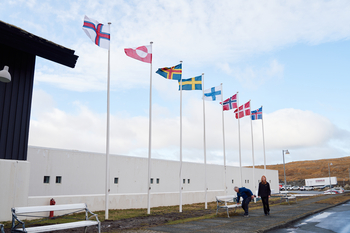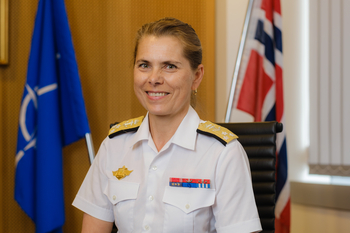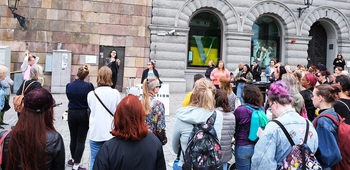Resilient democracies and trust are the essence of Nordic-Baltic relations
Secretary General of the Nordic Council of Ministers, Karen Ellemann; Lithuania’s Vice-Minister of Foreign Affairs, Jonas Survila; and Head of the Europe and North America Department at the Swedish Ministry for Foreign Affairs, Cecilia Ruthström-Ruin, met in Lithuania to discuss the value of Nordic-Baltic co-operation for the citizens of the Baltic Sea Region.
“Although we all know what the current geopolitical situation is, I’m choosing to be optimistic because that’s what we badly need. Just look at the history of the Nordic and Baltic countries. We have strong democracies and open, liberal economies. That is our most valuable resource, but we mustn’t take it for granted. We must strive for co-operation at all levels between our countries,” stated Karen Ellemann, Secretary General of the Nordic Council of Ministers, who praised the progress that has been made when it comes to co-operation within the area of civil society, for example.
Baltic and Nordic countries share democratic values
At the meeting, Lithuania’s Vice-Minister of Foreign Affairs, Jonas Survilas, emphasised how much the Baltic and Nordic countries have in common, including democracy, human rights, and principles of the rule of law. He pointed out that such values are under threat in Ukraine and, in this context, he pointed out the importance of the Nordic and Baltic countries continuing and stepping up their support for Ukraine. According to the Kiel Institute for the World Economy, the Baltic and Nordic countries are among those providing the most support.
“But it’s not enough that we’re top five in the world. We need to convince our partners abroad not only to continue their efforts but to step them up,” said Lithuania’s Vice-Minister of Foreign Affairs, Jonas Survilas.
Sweden starts a new chapter
Cecilia Ruthström-Ruin, Head of the Europe and North America Department at the Swedish Ministry for Foreign Affairs, was also concerned about the security situation in the region. She highlighted the importance of Sweden’s recent membership of NATO. In her speech, she stressed that membership not only provides stability for Sweden, but for the entire region and the co-operation among the countries - co-operation that’s built on and continues to be built on trust:
“Of course, trust is important in all areas, but at the political level, I would highlight in particular the trust between leaders, which paves the way for opportunities for dialogue,” concluded Ruthström-Ruin.



